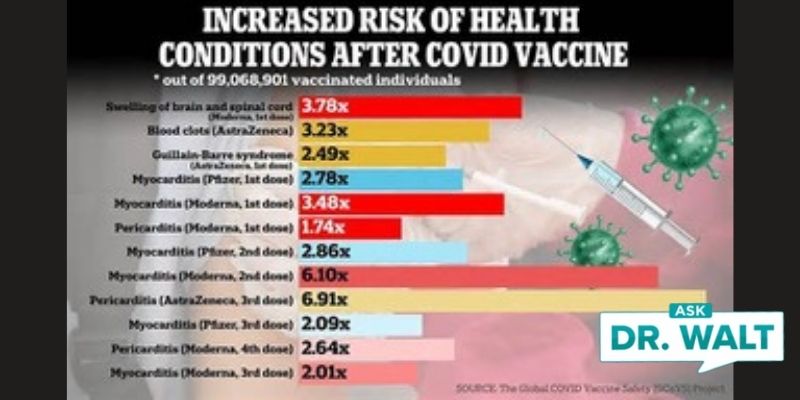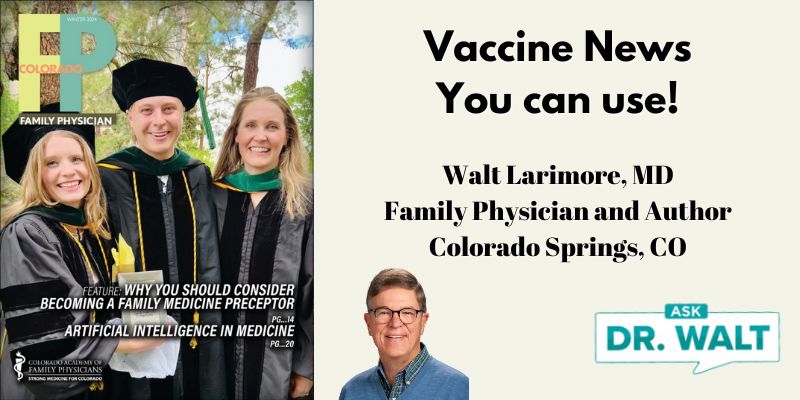Reader wants more proof on vaccine safety
Researchers say non-vaccinated children face dramatically increased whooping cough risk
May 27, 2009The Abortifacient Effect of the Birth Control Pill (A Reading List)
May 29, 2009A reader recently wrote: Hi Dr Walt I am having trouble finding a peer review or non drug company funded study proving that vaccines work out of the 2,427 (studies) you link to. Can you please identify one good one of these studies that proves they work for all the readers to read. Thanks.
More Information:Since you just asked for one, take a look at this one:
- Tozzi AE, Bisiacchi P, Tarantino V, De Mei B, D’Elia L, Chiarotti F, Salmaso S.Neuropsychological performance 10 years after immunization in infancy with thimerosal-containing vaccines. Pediatrics. 2009 Feb;123(2):475-82. Epidemiology Unit, Bambino Gesù Hospital, Piazza S. Onofrio 4, 00165 Rome, Italy.
This study was funded by the CDC – not a drug company.
According to the AP coverage of this study:
“A new study from Italy adds to a mountain of evidence that a mercury-based preservative once used in many vaccines doesn’t hurt children, offering more reassurance to parents. …
“Randomization sets the new study apart. The random assignment of children rules out the chance that factors other than thimerosal, such as education or poverty, caused the results. …
“The study, funded by the U.S. Centers for Disease Control and Prevention, drew praise from outside experts.
“It’s yet another well done, peer-reviewed research study that has demonstrated there is no risk of any neurodevelopmental outcomes associated with thimerosal in vaccines,” said epidemiologist Jennifer Pinto-Martin of the University of Pennsylvania.
“This becomes the fourth study to look for subtle signs of mercury toxicity and show the answer was ‘no,’” said Dr. Paul Offit, chief of infectious diseases at the Children’s Hospital of Philadelphia, the author of a book on autism research and the co-inventor of a rotavirus vaccine.
“Tozzi said comparing children with no exposure to thimerosal could have improved the study. ‘However, if thimerosal were a cause of harm, it is likely that this effect would increase with the administered dose,’ he said.”
It’s studies like this one that sunk the anti-vaccine movement’s boat in front of the U.S. Court of Claims. You can read my blog about this ruling here.
Basically, this special court ruled rather dramatically against three sets of parents with autistic children, saying that vaccines are absolutely not to blame for their children’s neurological disorder (autism).
The judges in the cases said the evidence was overwhelmingly contrary to the parent’s claims — and their ruling backs years of science and mountains of evidence from around the world that found no risk for either the MMR vaccine or the vaccine preservative, thimerosal, having any role in autism or ASD.
More than 5,000 claims were filed with the U.S. Court of Claims alleging that vaccines caused autism and other neurological problems in their children.
To win, the parents and their attorneys only had to show that it was more likely than not that the autism symptoms were directly related to the measles-mumps-rubella shots they received. They did NOT have to prove it beyond a shadow of a doubt – which is the usual standard in court cases.
Furthermore, only the best cases, those most likely to uphold the accusation that vaccines caused autism were considered. And, not even the strongest cases held any water.
And, if you don’t like the one study I reference above, there are many, many more. Look at this CDC internet page. Scroll down the page to the vaccine-specific recommendations. Then when you get into the individual vaccine recommendation document for the vaccine you are interested in, there is a list of references (tons of them) at the end of the document.
In the text of the document, you can read past the description of the disease and epidemiology, and then it starts to talk about the vaccine itself — safety, efficacy, cost-effectiveness, etc.
Each of these assertions will be referenced by number, and you can then go to the end of the document and those studies will be there under the corresponding reference number.
ALL of the referenced studies are peer-reviewed. ALL of them Hundreds and hundreds (perhaps, thousands) of them.
Many are CDC or NIH funded (NOT drug company funded).
Of course, many ARE drug company funded, and if you want to discuss drug funding bias, let me know. I’d be happy to do so.
Hope this helps.






